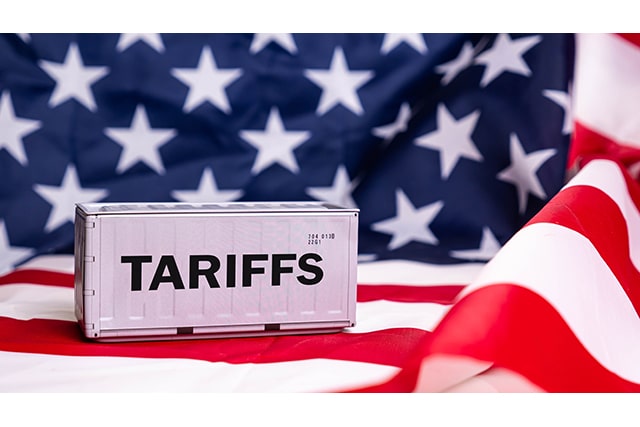Taxes vs. Tariffs in Mexico: What’s the Difference?
07.16.25References to taxes and tariffs are often used interchangeably in conversation. However, there are distinctions between the two to understand, especially when operating in a foreign country.
By understanding the purpose of each more fully, it can paint a clearer picture of how it will impact total costs.
How Tariffs Are Applied
Tariffs are imposed under trade agreements with other countries. They are important to consider when calculating costs on the import and export of goods.
For example, with regards to the USMCA, goods must be accurately categorized to determine if they meet the rules of origin for tariff-free qualification.
How Taxes Are Applied
Alternatively, taxes are mandatory, government-imposed charges on income and transactional sales. They are applied in a broader sense that extends beyond trade.
Two specific taxes to consider when manufacturing in Mexico are value-added tax (VAT) and income tax.
- Value-Added Tax (VAT)
A 16% VAT is applied to most goods and services when manufacturing in Mexico. However, exemption is granted for those approved for VAT certification and the IMMEX program.
- Income Taxes
Foreign companies generating revenue in Mexico may be subject to corporate income tax. It’s important to understand what qualifications are in place to maintain compliance and avoid penalties and/or financial setbacks.
Shelter Services in Mexico Help Manufacturers Save
Tax and tariff rules and regulations are constantly changing. Implementing shelter services in Mexico provides manufacturers with comprehensive administrative support, which has significant advantages, including:
1. Cost Savings
The application of the 16% VAT can affect profit margins, and miscategorized goods and materials can lead to costly setbacks that can have negative ripple effects on production.
However, working with a shelter partner helps to speed up the compliance process when manufacturing in Mexico, allowing businesses to benefit from tax savings and avoid tariff penalties from the start.
2. Compliance Maintenance
Customs regulations are constantly in flux; this year, in particular. Without the proper categorization, companies are subject to heavy fines and may face legal issues, delays, or complete shutdowns.
An important part of a complete shelter services solution involves working closely with a U.S. customs broker who is seasoned in navigating compliance measures. This includes a review of a manufacturer’s Bill of Materials to determine what goods qualify per current USMCA (and other trade agreement) requirements.
3. Strategic Decision-Making
Shelter services in Mexico are also a strategic part of manufacturing, helping foreign industrial companies save on costs, speed up timelines, and stay flexible as they grow.
When manufacturers operate as a standalone entity, it can take twice as long to set up production. Plus, they’ll have to wait for IMMEX program and VAT certification approval before being exempt from the 16% VAT, which can take weeks, if not months.
Get Shelter Services Expertise Today
A shelter company provides the administrative support necessary for a quick startup. By offering managed services all in one place, such as taxes, accounting, human resources, and trade compliance, manufacturers can keep their focus solely on production.
To learn more about how taxes and newly implemented tariffs will impact your manufacturing goals, plus how shelter services in Mexico can optimize savings, contact IVEMSA today.